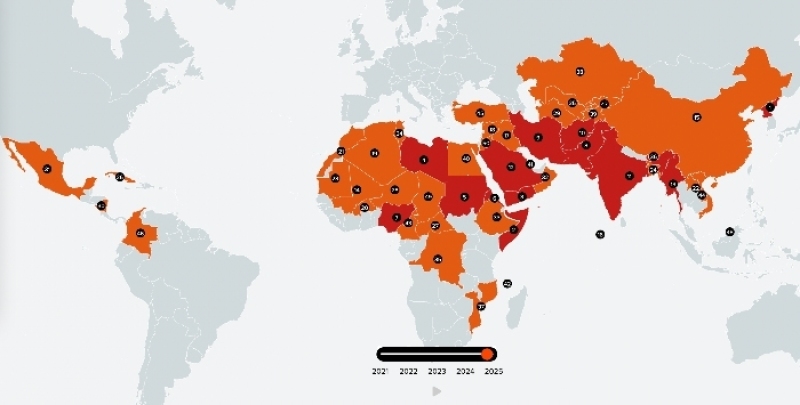
The United Kingdom’s special envoy for freedom of religion or belief, David Smith, has issued a stark warning that Christianity is at risk of being “wiped out” in parts of the world due to increasing persecution. The British government is now focusing on 10 countries as part of its revised foreign policy, aimed at defending this fundamental human right.
Smith, a Labour Party MP for North Northumberland, made these remarks during a briefing at the Foreign and Commonwealth Development Office. He announced a new strategy to prioritize freedom of religion or belief (FoRB) in countries where religious minorities, including Christians, Baháʼís, and Ahmadiyya Muslims, face repression or violence, according to the Religion Media Centre.
He stated, “The U.K. will focus on 10 countries,” including Vietnam, Algeria, India, Nigeria, Pakistan, China, Syria, Ukraine, Afghanistan, and Iraq. Smith explained that these countries were selected because of the severity of need, the U.K.’s diplomatic ties, and the potential for positive progress.
Smith highlighted that persecution can involve “harassment by police, social ostracism, detention without cause, denial of citizenship, torture, attacks on places of worship and even killings,” citing research by the Pew Research Center.
He provided recent data showing that “380 million Christians face persecution worldwide” and warned that “Persecution on the basis of religion or belief, enacted by States themselves and social groups, is taking place on every continent in the world.”
Smith described the U.K.’s renewed commitment as “a new chapter” in its foreign policy and emphasized that freedom of religion is “interlinked with other liberties, including freedom of speech, conscience and assembly.” Smith pointed to examples such as the Ahmadiyya community in Pakistan, who are not recognized as Muslims by the state and whose mosques are often desecrated, as well as the repression of Baháʼís in Iran and Christians in North Korea.
He explained that FoRB “is not merely about religious belief but about the health of societies” and warned that “religious intolerance and persecution can fuel instability and conflict.” He stressed that “protecting belief rights is crucial to preventing future crises,” especially in countries facing war or sectarian divisions.
The envoy role was created following a 2019 report by then-Bishop of Truro Philip Mounstephen. The report found that Foreign Office staff lacked awareness of the extent of global religious persecution and recommended that religious freedom be “formally integrated into U.K. foreign policy.”



















